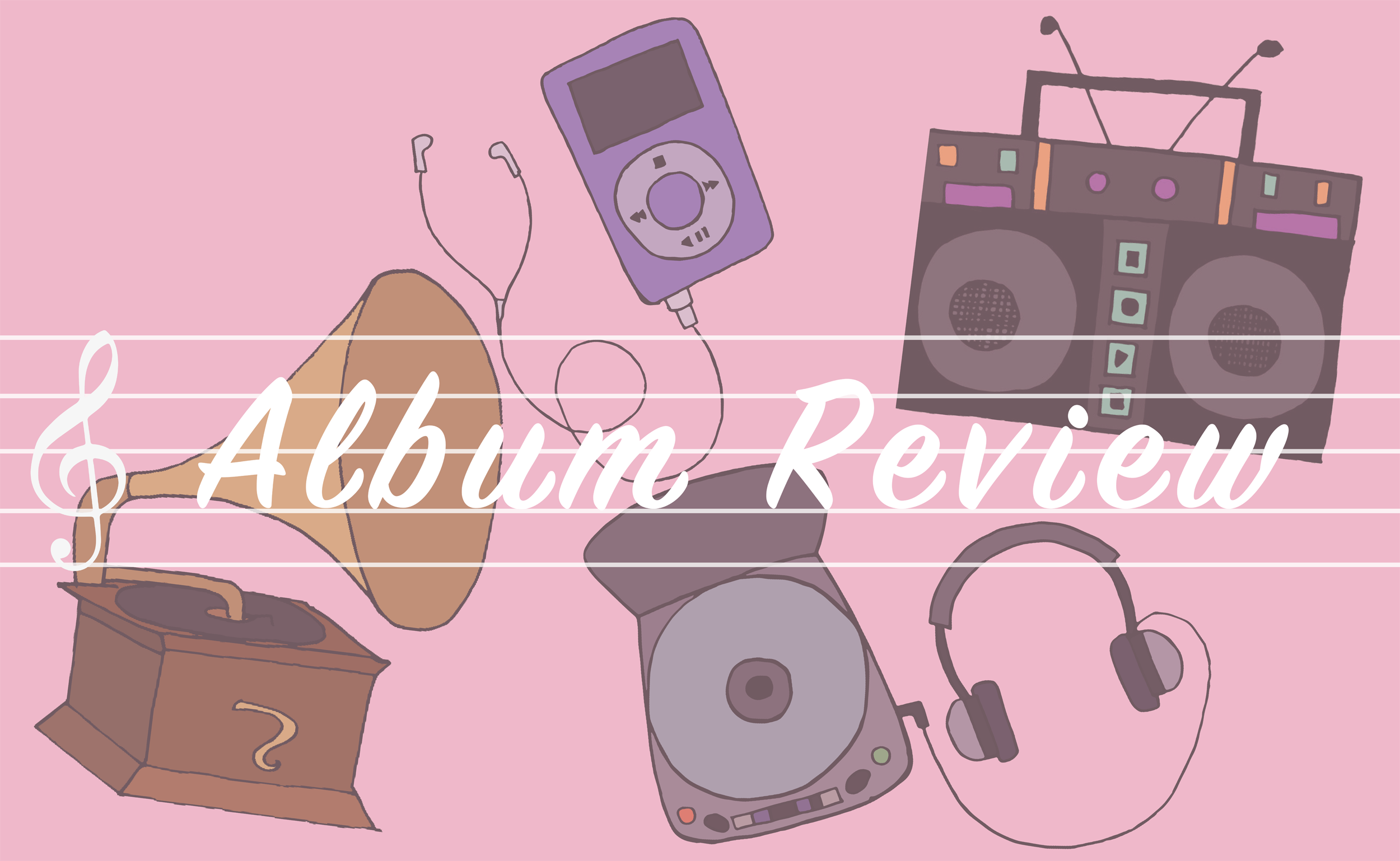Quarantine peaked for me when I was watching Phoebe Bridgers perform in shooting-star pajamas and a skeleton costume while promoting her latest album, Punisher (2020). In her performance of “Kyoto” for Jimmy Kimmel Live, she is positioned in her bathtub wearing the celestial pajamas using a QChord, with a toy microphone taped to a stand and what looks like Head & Shoulders shampoo in the background. As one of the comments on the video says, “she is a national treasure.”
The highlight of Punisher, Bridgers’s second studio album released June 18, is the artist herself. Her endearing and unique personality shines not only in her music videos and all of her promotional appearances, but also through her entire discography. One of Bridgers’s talents is constructing highly personal songs that pinpoint incredibly specific moments or emotions, and then exploring them in a narrative fashion. Because of this, it almost feels like her albums are anthologies set to music rather than ordinary records.
The album opens with “DVD Menu,” whose eerie strings and ominous ambient sounds give it an apocalyptic feel, an omen for what’s to come. Immediately afterward, however, she launches into the masterpiece that is “Garden Song.” In this track, Bridgers sets lyrics describing dark, nightmarish thoughts to what starts as a whimsical melody. Soon, those fingerpicked guitar chords are complemented by a low-pitched male voice, lagging slightly behind her singing to underscore a dreary, unfulfilled mindset she sings about rejecting.
In an interview with Apple Music, Bridgers goes into the inspiration behind “Garden Song” and its themes. “It’s about fighting back dark, evil murder thoughts and feeling like if I really want something, it happens, or it comes true in a totally weird, different way than I even expected,” she said.
Much like her interesting instrumentation, Bridgers’s lyricism is undeniably brilliant. She paints vivid portraits of mundane actions and situations to juxtapose the powerful emotion that lies behind them. In “Kyoto,” she sings, “I’ve been driving out to the suburbs / To park at the Goodwill / And stare at the chem trails / With my little brother / He said you called on his birthday / You were off by like ten days / But you get a few points for tryin’.” In this track, Bridgers shares her feelings of being overwhelmed by touring as well as her resentment towards her father through upbeat percussion and trumpets that contrast the laser-sharp, unambiguous lyrics.
In “Graceland Too,” the record’s penultimate track, she acknowledges that the lamentable reality of trying to be a good friend to a troubled person is that there’s only so much you can do: “So we spent what was left of our serotonin / To chew on our cheeks and stare at the moon / Said she knows she lived through it to get to this moment / Ate a sleeve of saltines on my floor and I knew then / I would do anything you want me to.”
The gripping and poignant nature of Bridgers’s music largely stems from her tendency to balance out the instrumental arrangements with her vocals and lyrics. The emphasis is above all on the stories she is trying to tell; the production choices are meticulously made so that they complement—and in some tracks, like “Kyoto,” strategically juxtapose—the lyrical content to recreate a very specific sentiment.
In Bridgers’s case, that sentiment is usually a complex amalgamation of anger, despondency, and nostalgic sorrow. In “Savior Complex,” my personal favorite, there’s a dreamlike innocence in the guitar strums, the clarinet solo, and in Bridgers’s own angelic crooning. The lyrics are, in fact, quite haunting, as she references the circularity of a toxic relationship: “Drift off on the floor / I drag you to the shore / Sweating through the sheets / You’re gonna drown in your sleep for sure.” On the other hand, “Halloween” features subtle, chilling howls in the background whilst Bridgers accordingly sings about a relationship that has reached its demise.
The closing track, “I Know the End,” is actually split into two distinct halves. In the first half, Bridgers applies an almost gospel-like tone to her voice as she sings about being afraid to leave the familiarity of home. However, she completely subverts that mood in the second portion of the song, which starts with her actually having left home and beginning a journey, building up a hopeful, free atmosphere. That quickly changes, though; suddenly you realize she’s describing an apocalypse as the song devolves into a cacophony of discordant instruments and raucous screams. And, because it’s Phoebe Bridgers, the final lines before the screams begin give the album a cheeky, self-aware quality, too: “The end is here.”
Phoebe Bridgers’s songs are all profoundly personal and introspective, and she doesn’t mince words; she hits you with blunt, honest lyrics and unique melodies that aren’t meant to produce a “banger.” Rather, it’s about weaving together a patchwork of authentic narratives chronicling her experiences and emotional conflicts, despite her outward stoicism at times. To that end, her songwriting capabilities are truly extraordinary; without fail, she manifests crystal clear imagery, and the emotions that correspond to them, into your mind through her lyrics. By the time you get through the album, one thing is abundantly clear: listening to Phoebe Bridgers is as cathartic as exhaling.
VOICE’S CHOICES: “Savior Complex,” “Punisher,” “Chinese Satellite”






